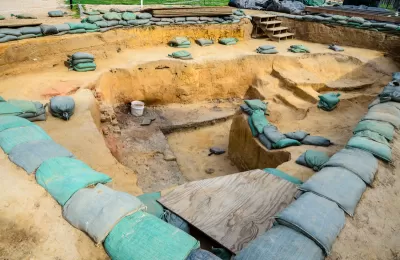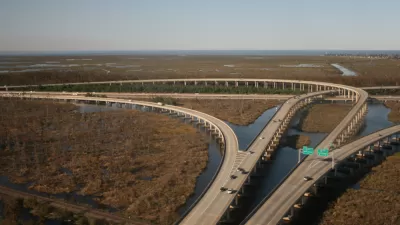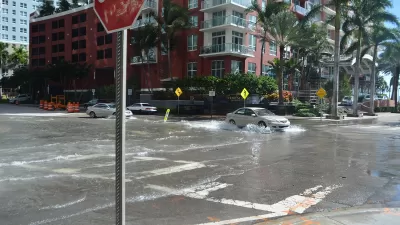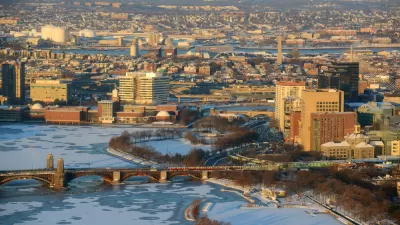Researchers have created a digital database of archaeological sites in the U.S.—and thousands could be lost to sea-level rise.

A new study shows that sea level rise could drown tens of thousands of archeological sites in the southeastern United States alone, potentially destroying critical evidence about early North American settlements and their own responses to climate change," Kate Wheeling writes in Pacific Standard.
According to the study, nearly 20,000 archaeological sites would be submerged if sea levels rose by one meter—an increase that could occur by the end of the century. At five meters, more than 32,000 sites would be destroyed. For more inland areas, it's not the sea itself but mitigation efforts that could pose a threat, as "development to accommodate relocated populations or to try to stave off flooding" could destroy cultural resources.
To complete the study, researchers catalogued more than half a million archaeological sites in a comprehensive multi-state database dubbed the Digital Index of North American Archaeology.
FULL STORY: HOW RISING SEA LEVELS THREATEN AMERICA'S CULTURAL HERITAGE

Planetizen Federal Action Tracker
A weekly monitor of how Trump’s orders and actions are impacting planners and planning in America.

Congressman Proposes Bill to Rename DC Metro “Trump Train”
The Make Autorail Great Again Act would withhold federal funding to the system until the Washington Metropolitan Area Transit Authority (WMATA), rebrands as the Washington Metropolitan Authority for Greater Access (WMAGA).

The Simple Legislative Tool Transforming Vacant Downtowns
In California, Michigan and Georgia, an easy win is bringing dollars — and delight — back to city centers.

The States Losing Rural Delivery Rooms at an Alarming Pace
In some states, as few as 9% of rural hospitals still deliver babies. As a result, rising pre-term births, no adequate pre-term care and harrowing close calls are a growing reality.

The Small South Asian Republic Going all in on EVs
Thanks to one simple policy change less than five years ago, 65% of new cars in this Himalayan country are now electric.

DC Backpedals on Bike Lane Protection, Swaps Barriers for Paint
Citing aesthetic concerns, the city is removing the concrete barriers and flexposts that once separated Arizona Avenue cyclists from motor vehicles.
Urban Design for Planners 1: Software Tools
This six-course series explores essential urban design concepts using open source software and equips planners with the tools they need to participate fully in the urban design process.
Planning for Universal Design
Learn the tools for implementing Universal Design in planning regulations.
Smith Gee Studio
City of Charlotte
City of Camden Redevelopment Agency
City of Astoria
Transportation Research & Education Center (TREC) at Portland State University
US High Speed Rail Association
City of Camden Redevelopment Agency
Municipality of Princeton (NJ)





























